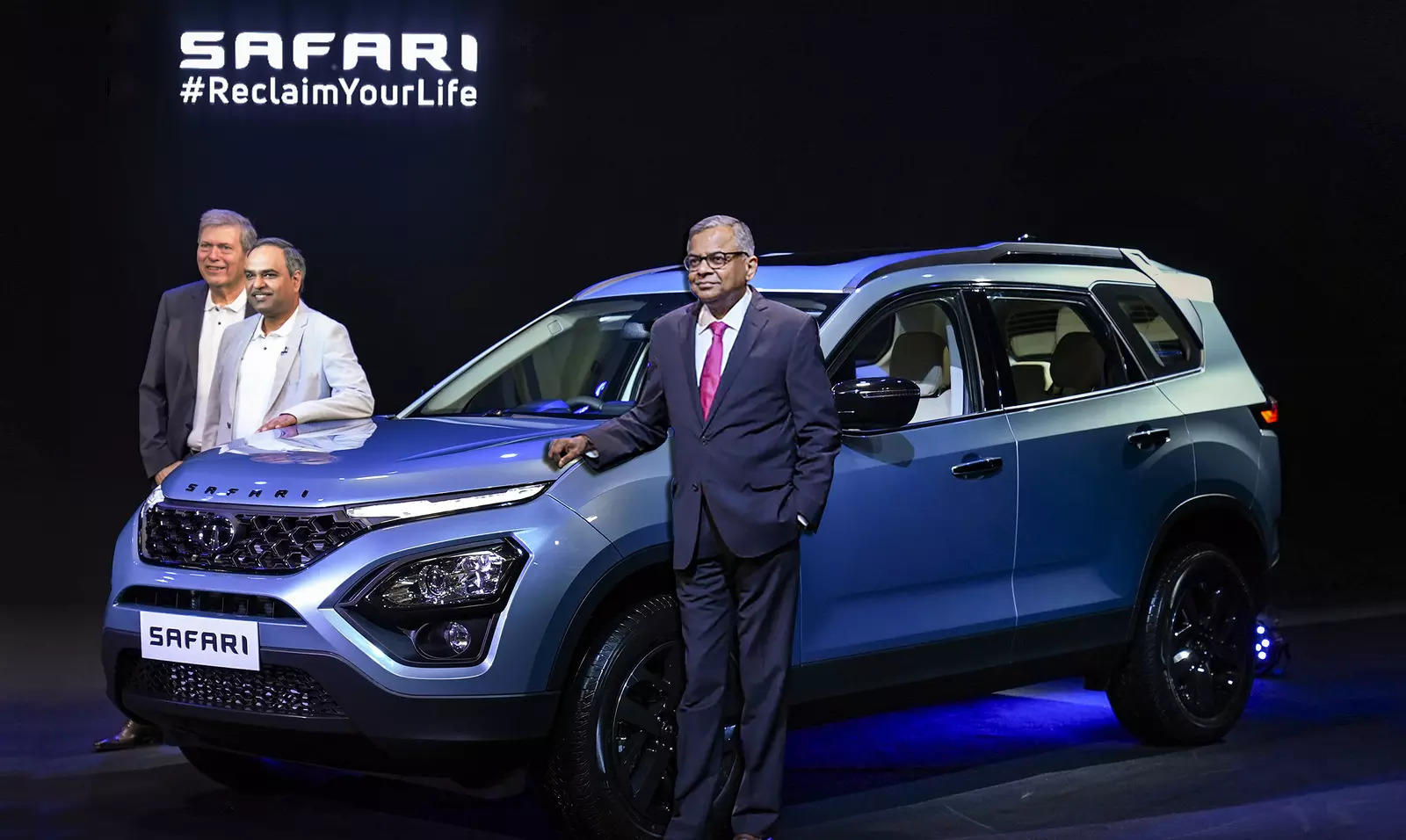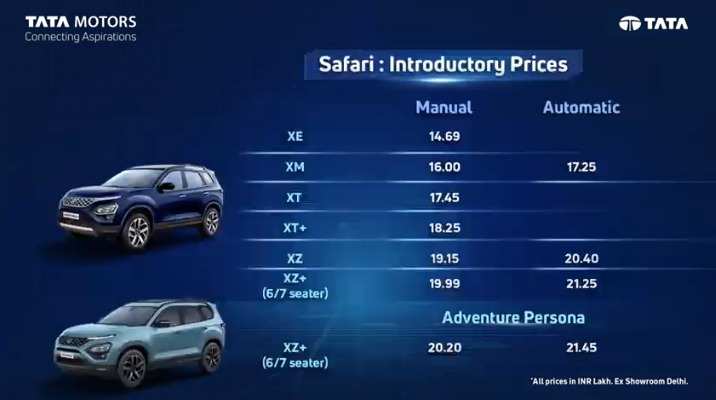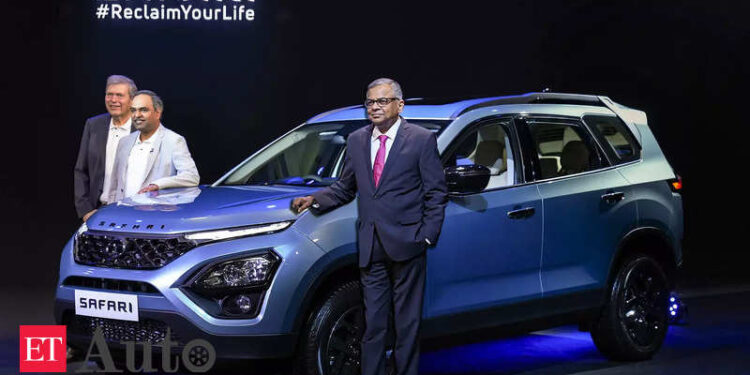
Mumbai: Tata Motors is driving back to the 1990s – to secure its future in the 21st century.
The wanderlust generation’s preferred set of wheels in the early years of liberalization, the Safari is making a bold comeback in a chic, contemporary avatar – as the costliest passenger vehicle to date to sport the Tata badge.
Safari’s revival marks the rollout of a broad-spectrum product strategy built around SUVs that Tata believes will help it reclaim lost market share in one of the world’s fastest expanding auto markets.
“We will ensure that our portfolio is planned in a manner that it gives seamless continuity for a customer who first buys (an entry-level) car in our portfolio to upgrade to so that his whole life he can be in the brand of Tatas. SUV is the fastest-growing segment and this year we will have an option at both ends of the spectrum,” said Shailesh Chandra, president of the passenger vehicles business at Tata Motors.

The Safari SUV will start at an ex-showroom price of Rs 14.69 lakh, and the range-topping variant will cost Rs 21.45 lakh, ex-showroom Delhi. This will be followed by an entry SUV codenamed HBX at the affordable end of the market aimed at the hatchback and sedan buyers, widening its portfolio to address different ends of the markets.
Even as the supply side challenges continue, the company assures that in case of higher demand, Tata Motors has made enough provisioning on capacity. It has asked vendors to prepare for a 2,000-unit-a-month production plan, which will double the Omega platform volumes to 4,000 units – i.e. including the 2,000 units of Harrier.
Declining to share booking numbers, Chandra said the initial traction “exceeded the company’s expectation.”
Attractive design and high-safety quotient in Tata cars has allowed the company to outpace the market, claimed the company.
On the Mend
The passenger vehicle market share of Tata Motors improved from 5% in FY-20 to 8% in FY-21 so far, its highest in recent years. The company is planning to double its production in FY-22 over FY-21, ET reported last week, with newer models, it aims to break into double-digit market share next fiscal.
While the company is actively looking for partners for its passenger vehicles business, it will continue to invest in future products to address the “white spaces” or gaps in its product range, Chandra said.
“There will be no wait for a partner. A partner is only going to be a force multiplier, but our immediate focus is on how we are able to grow faster than the market,” he said. “We will keep investing in ensuring that our portfolio is refreshed fast at the right frequency and periodicity that it is needed.”
The Revival Toolkit
So far, it has handled the competition well, with Altroz, Nexon and Harrier carving a niche for themselves in the fiercely fought premium hatchback, compact and mid-size SUV segments, respectively. There is a seven-seater offering expected from Hyundai and Jeep in the coming years; Chandra is, however, confident of the brand’s acceptability at the top end of the market.
The company claims 60% of prospective buyers have Tata Motors among the top two in the consideration set. Chandra said that the brand has the required equity even in the higher price ranges, which can be seen by rising Harrier numbers.
“Customers have appreciated the features and superior drivability of the Harrier and therefore it shows that the Tata brand is capable of stretching itself to that (price) level and has been respected in that category. And Safari is just in the adjacent segment to Harrier,” said Chandra.
“As purchasing power increases and vehicle financing becomes easier, people are going for more expensive cars and we are well-positioned there also,” he said.













